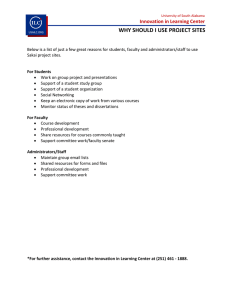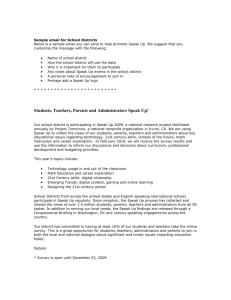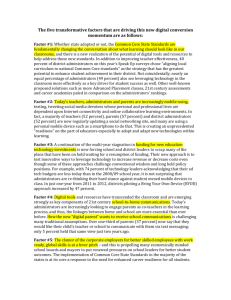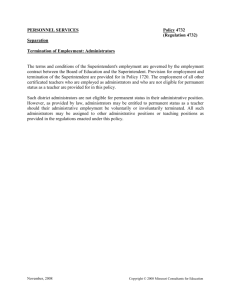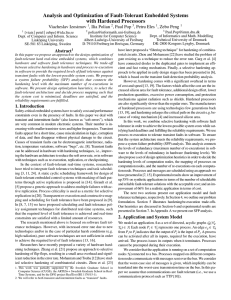PRAIRIE VIEW A&M UNIVERSITY UNIVERSITY ADMINISTRATIVE PROCEDURE
advertisement
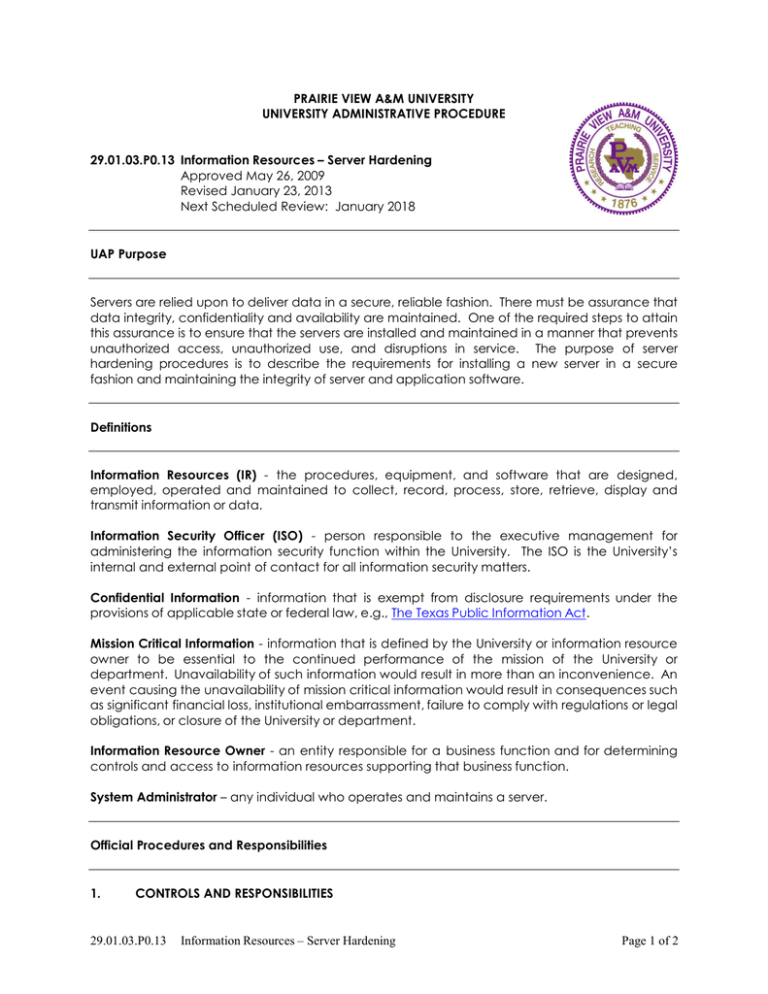
PRAIRIE VIEW A&M UNIVERSITY UNIVERSITY ADMINISTRATIVE PROCEDURE 29.01.03.P0.13 Information Resources – Server Hardening Approved May 26, 2009 Revised January 23, 2013 Next Scheduled Review: January 2018 UAP Purpose Servers are relied upon to deliver data in a secure, reliable fashion. There must be assurance that data integrity, confidentiality and availability are maintained. One of the required steps to attain this assurance is to ensure that the servers are installed and maintained in a manner that prevents unauthorized access, unauthorized use, and disruptions in service. The purpose of server hardening procedures is to describe the requirements for installing a new server in a secure fashion and maintaining the integrity of server and application software. Definitions Information Resources (IR) - the procedures, equipment, and software that are designed, employed, operated and maintained to collect, record, process, store, retrieve, display and transmit information or data. Information Security Officer (ISO) - person responsible to the executive management for administering the information security function within the University. The ISO is the University’s internal and external point of contact for all information security matters. Confidential Information - information that is exempt from disclosure requirements under the provisions of applicable state or federal law, e.g., The Texas Public Information Act. Mission Critical Information - information that is defined by the University or information resource owner to be essential to the continued performance of the mission of the University or department. Unavailability of such information would result in more than an inconvenience. An event causing the unavailability of mission critical information would result in consequences such as significant financial loss, institutional embarrassment, failure to comply with regulations or legal obligations, or closure of the University or department. Information Resource Owner - an entity responsible for a business function and for determining controls and access to information resources supporting that business function. System Administrator – any individual who operates and maintains a server. Official Procedures and Responsibilities 1. CONTROLS AND RESPONSIBILITIES 29.01.03.P0.13 Information Resources – Server Hardening Page 1 of 2 1.1 System administrators must only install the operating system after they have verified the source is legitimate. 1.2 System administrators must ensure that vendor supplied patches are routinely acquired and installed promptly. 1.3 Upon completion of server installation, system administrators must remove unnecessary software, system services and drivers. 1.4 Upon completion of server installation, system administrators must set security parameters, file protections and enable audit logging. 1.5 Upon completion of server installation, system administrators must disable or change the password of default accounts. 1.6 Upon completion of server installation, system administrators must implement system identification and logon banners that include the following statements: 1.7 1.6.1 Unauthorized use is prohibited; 1.6.2 Usage may be subject to security testing and monitoring; 1.6.3 Misuse is subject to criminal prosecution; and, 1.6.4 No expectation of privacy except as otherwise provided by applicable privacy laws. The Information Security Officer will monitor server updates and patches on an annual basis. Related Statutes, Policies, Regulations and Rules Texas Administrative Code 202.75 Information Resources Security Safeguards System Regulation 29.01.03 – Electronic Information Services Access and Security The Texas Public Information Act Contact Office Office of Information Resources Management 29.01.03.P0.13 Information Resources – Server Hardening 936-261-9350 Page 2 of 2
